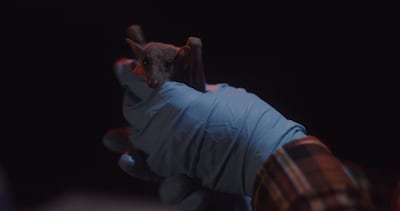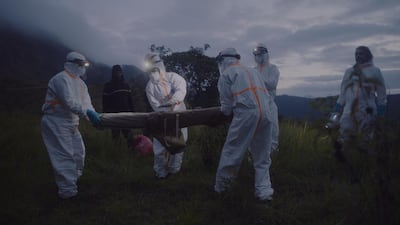One of the biggest surprises of the coronavirus pandemic was how ill-prepared people were to deal with it. Around the world, governments tried to find the right way to handle the rising number of infections and deaths.
By the time many borders were closed and safety measures imposed, the virus had already spread enough to cause a pandemic. While we are still very much in the thick of it, the worst could still be ahead of us.
"Another pandemic could be just around the corner," epidemiologist Christopher Golden says. His words are chilling, but fear-mongering is not his intent. Rather, he wants us to be prepared for what is yet to come.
For the better part of the year, Golden, along with ABC News foreign correspondent James Longman and their team have been travelling the world to get a better understanding of how zoonotic diseases – those that are shared between animals and humans, such as Covid-19 and Ebola – become an epidemic. He has also been trying to identify what lessons can be learnt from previous outbreaks in the hopes of preventing future ones before it's too late.
Golden's journey and findings are the focal point of new documentary series Virus Hunters. The show premiered on National Geographic Abu Dhabi on November 26 and is now available to stream in full on the National Geographic website.

The series follows Golden and his team as they head to places such as Liberia, where they study the outbreak of the Ebola virus in 2014, then to southern Turkey and to Wisconsin and Iowa in the the US Midwest, where an unusually high number of Covid 19 cases were reported.
“To be honest, being in Turkey and Liberia felt so much safer than being in the US Midwest,” Golden says. “Few people there were acting responsibly from a public health standpoint.”
Filming during the coronavirus wasn't easy. Some countries they wanted to film in were not open at all, and it became impossible to include some stories. Fortunately, this did not minimise the show's central message: the coronavirus pandemic should be a wake-up call.
The idea for the documentary series came after director Drew Pulley saw a short film on National Geographic that showcased Golden’s research in Madagascar that revealed unexpected connections between environmental trends and human health.
"The short film highlighted the ways in which rapidly accelerating human-driven environmental change has led to conflicts with human well-being and public health," Golden says. "These stories are a general pattern across the globe and telling their stories are so important for us to learn from this history."
The same is true for Virus Hunters. Golden hopes that his findings will help better prepare for future pandemics. While the Covid-19 outbreak, he says, could not have been avoided, it certainly could have been dealt with more effectively. Still, there are lessons to be learnt, he says. Ones that could help minimise the risks of future pandemics or stop them before they even begin.
And it is clear to Golden that there will be future pandemics.
He says the widespread transformation of natural environments through deforestation, urbanisation and agricultural expansion has led to increased human encroachment on wild habitats as well as a growth between humans and wild and domesticated animals. These factors precipitate the emergence of zoonotic diseases.

Slowing these diseases down and making them less frequent will require more care for the planet.
“The health of people and the health of the planet are inextricably woven together,” he says. “Without our diligent care for the planet, stewarding natural resources and managing natural systems, we will continue to see the impacts of these pandemics in our future. We cannot expect to maintain public health without considering planetary health.”
Golden says it is vital that we look at the underlying causes of these outbreaks. They are rooted in the way society has transformed and degraded environmental systems. "If we can start to reverse this and conserve the environment, we will see a healthier future."


